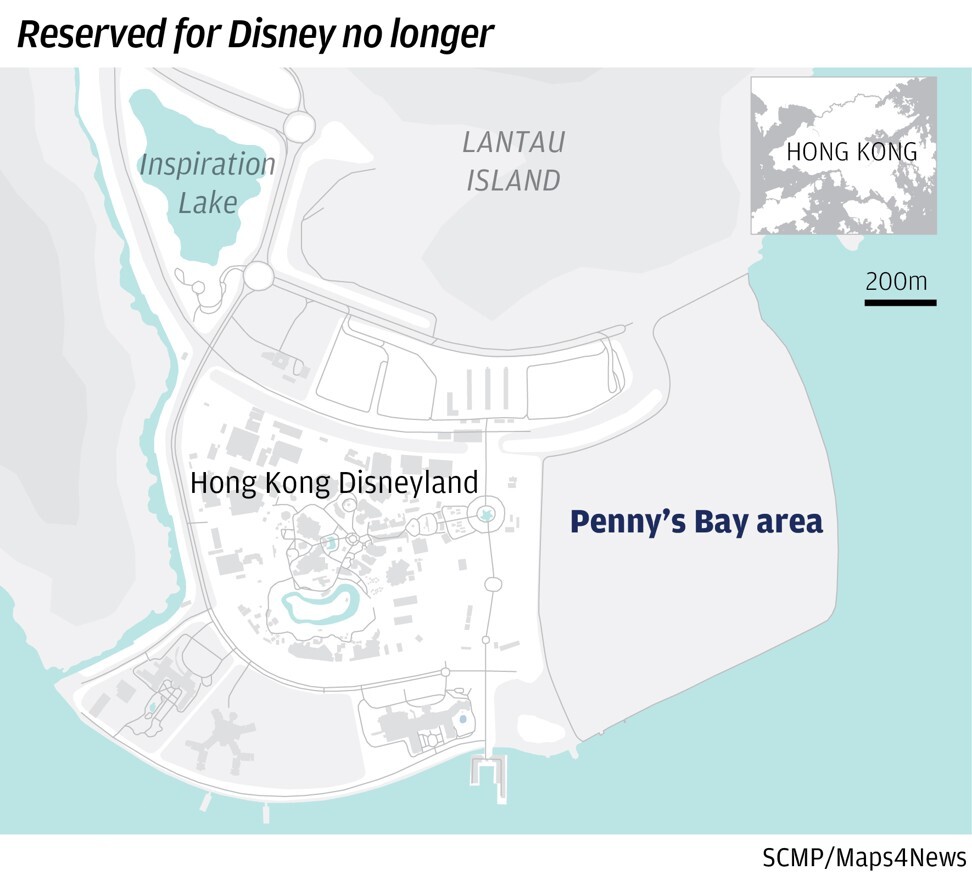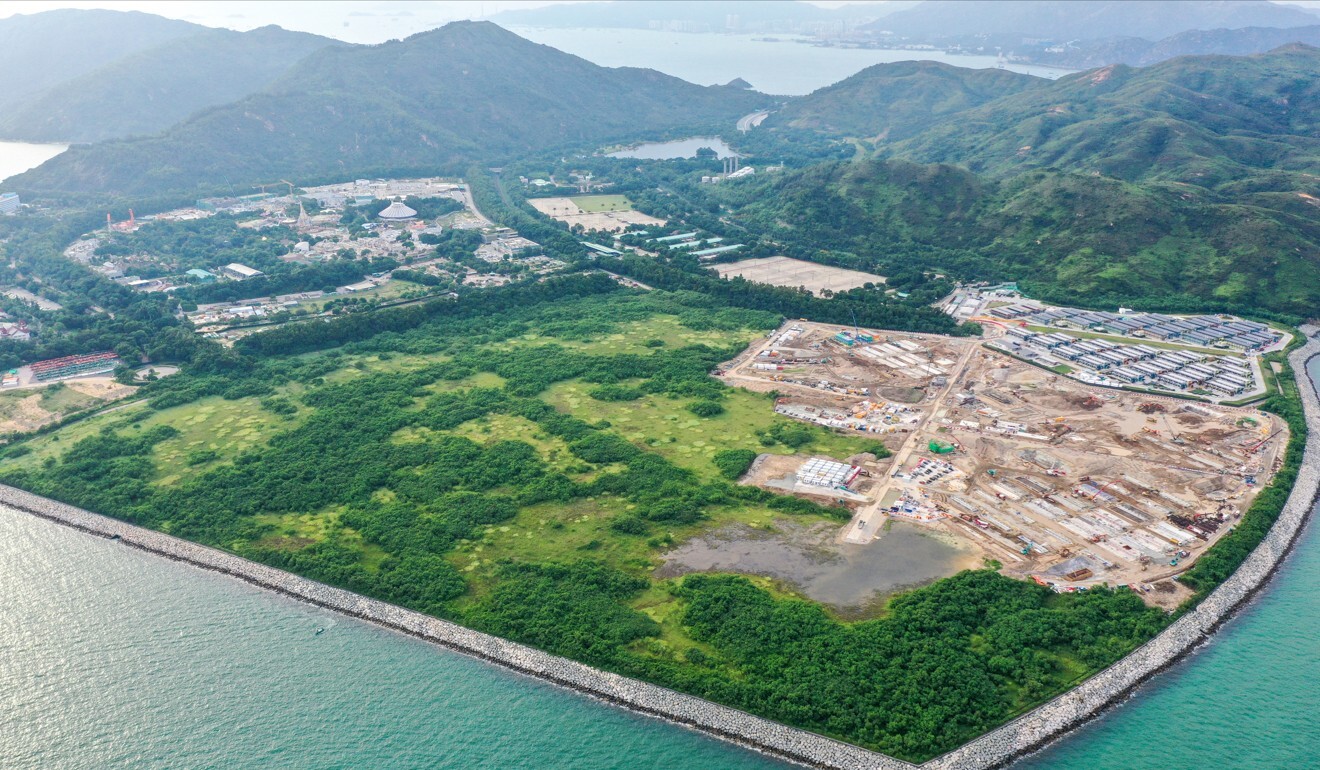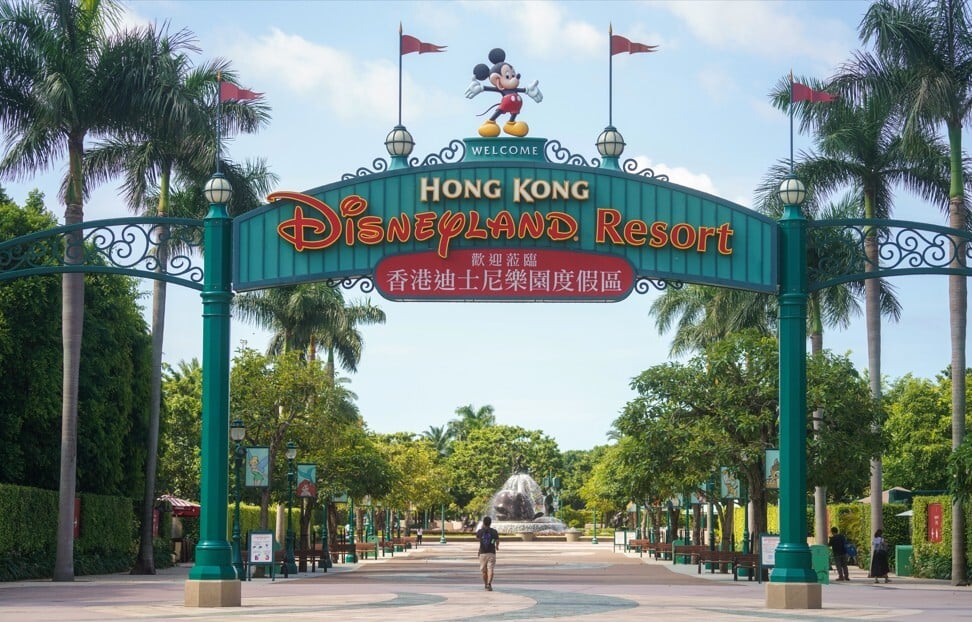
Hong Kong Disneyland’s option on next-door site will not be renewed, as park ‘could not commit to near-term expansion’
- For now, Covid-19 facilities will continue to operate and expand on the 60-hectare (140-acre) plot, which at one point was intended for a second park
- Government decision a pragmatic one, says tourism sector lawmaker, who foresaw little chance of land being used in next five years
While the Walt Disney Company said it was “extremely disappointed” in the decision, sources said the company had been unable to commit to using the site in the near future. The option was due to expire on Thursday.
The 60-hectare plot in Penny’s Bay on Lantau Island – the size of three Victoria Parks – was at one point eyed as a space where tens of thousands of temporary homes could be built for those on the waiting list for public housing.

Citing current economic conditions, the government on Wednesday announced it had decided not to extend an option that would have allowed Hongkong International Theme Parks Limited (HKITP), a joint venture between itself and Disney, to purchase the site next to it.
“The government considers it prudent for HKITP to focus on the development and expansion of the existing resort in the coming few years, rather than geographic expansion into a [new] site,” a spokesman for the Commerce and Economic Development Bureau said in a statement.
A government source said there was no concrete plan for the land’s use yet.
Another source familiar with the decision said discussions had been ongoing between the government and Disneyland for almost a year, with the park failing to give a concrete answer as to whether it would proceed with expansion on the site any time soon.

“As we understand, Disneyland did not want to take the risk, but at the same time, it did not want to give up the privilege of buying this piece of land, so after consideration, the government decided not to extend the offer, which could have stretched for another five years,” the source said.
“The government has not decided yet, but for now it will be used for quarantine facilities for a few years. Any options could be considered, except for the building of high-rise residential buildings.”
The expiry of the deal means the park will remain the smallest Disneyland in the world for the foreseeable future.
In a statement, the theme park giant said: “Over the past 15 years, the Walt Disney Company has stayed the course on its commitment to investment in Hong Kong Disneyland Resort and the economic growth of tourism in Hong Kong, and will continue investing in the current expansion plan.
“However, we are extremely disappointed with the Hong Kong government’s decision not to extend the phase 2 land expansion option.”
The Penny’s Bay area, which is about half the size of the current Disneyland, has sat idle for years.
Under a deed signed two decades ago, the site was to be reserved for HKITP to purchase when it was ready for a phase two expansion. It would be sold at a premium fixed at HK$2.8 billion (US$361 million) – adjusted for inflation – with hopes a second park would be built.
The purchase option was to lapse after 20 years if it had not been exercised or renewed, though the government had the option of allowing HKITP to take two five-year extensions.
Hong Kong Disneyland Resort losses double to HK$105 million amid protests
But the government ultimately decided not to extend that offer, according to a source, who said expansion plans within the current theme park would be unaffected.
Since its 2005 launch, the park has been in the black just three times – during a run from 2012 to 2014.
Its attendance figures have risen and fallen over the past half decade, with 6.8 million visitors in financial year 2015, 6.1 million in 2016, 6.2 million in 2017, 6.7 million in 2018 and 6.5 million in 2019.

In January, with the option less than a year from expiring, the government said it was unable to use the area for temporary housing purposes, as its existing contract with Disney required any development to be compatible with the theme park.
Secretary for Transport and Housing Frank Chan Fan nevertheless urged Disneyland at the time to “consider its social responsibility” and give up the site.
But as the city faced a third wave of coronavirus cases, a temporary quarantine centre was constructed there in a bid to relieve pressure on overcrowded hospitals. A four-hectare site on the location has been running since July with 800 beds, a number expected to rise to 3,500 by the end of this year.
In an interview with the Post in May, health minister Professor Sophia Chan Siu-chee said that temporary quarantine facilities built on the site could become permanent.
Andrew Wan Siu-kin, a Democractic Party lawmaker who has long advocated using the site for housing, on Wednesday described the government's decision as a “late awakening” given the park’s lagging performance.
“I roughly estimated the piece of land could offer 20,000 to 40,000 units to meet the urgent housing demand in Hong Kong,” he said. “The government does not have any more excuses not to use the land for housing development.”
Tourism sector lawmaker Yiu Si-wing, meanwhile, said he did not think the theme park would have been able to use the land in the next five years given the challenges it has faced recently, despite the city's arrival figures hitting a record high of 65.1 million in 2018.
“It’s pragmatic for the government to make this move,” he said.
Yiu brushed off worries that the government’s decision would affect the appeal of Hong Kong as a tourist destination, noting the city had many other drawing cards.
“It’s better than just relying on one or two attractions,” he said.
Additional reporting by Gary Cheung


